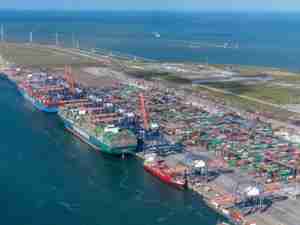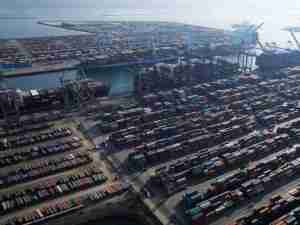Strikes halt grains exports from Argentina’s Rosario hub
By: Reuters | Jul 17 2014 at 03:06 PM | Ports & Terminals
A strike paralysed all grains exports from Argentina’s pivotal Rosario export hub on Thursday, a local business chamber said, disrupting shipping at a busy time in the harvest cycle.
Argentina is a leading global exporter of soybeans and corn. Prolonged strikes in the grains sector can have global market implications and hurt the country’s public finances, which are bolstered by export taxes on soy and related products.
“Activity is paralysed in the 22 port terminals ... in the zone between Timbues, San Martin and San Lorenzo, from where 80 percent of the country’s grains exports leaves,” said Guillermo Wade, president of the Port and Maritime Activities Chamber.
Located on the Parana River, Rosario is Argentina’s main grains port.
Workers under a local branch of the powerful CGT syndicate of unions walked out on Wednesday at 6 p.m. local time (2100 GMT).
Grains inspectors under the Urgara union also began a strike on Wednesday at midnight but lifted it at midday on Thursday after a request from the government to focus on wage talks.
Truck drivers have vowed to strike nationwide, beginning July 21.
Labor disputes are common in Argentina, where one of the world’s highest inflation rates is eating into wages, and frequently interrupt the shipping of grains for short periods.
The latest round of industrial actions comes near the end of the harvest for soy and corn, a peak time for exports. Typically thousands of truckloads of grain reach Rosario every day, with more than $20 billion worth of grains and soy products shipped every year.
Major grains exporters operating in Argentina include Bunge Ltd, Louis Dreyfus and Cargill Ltd.










